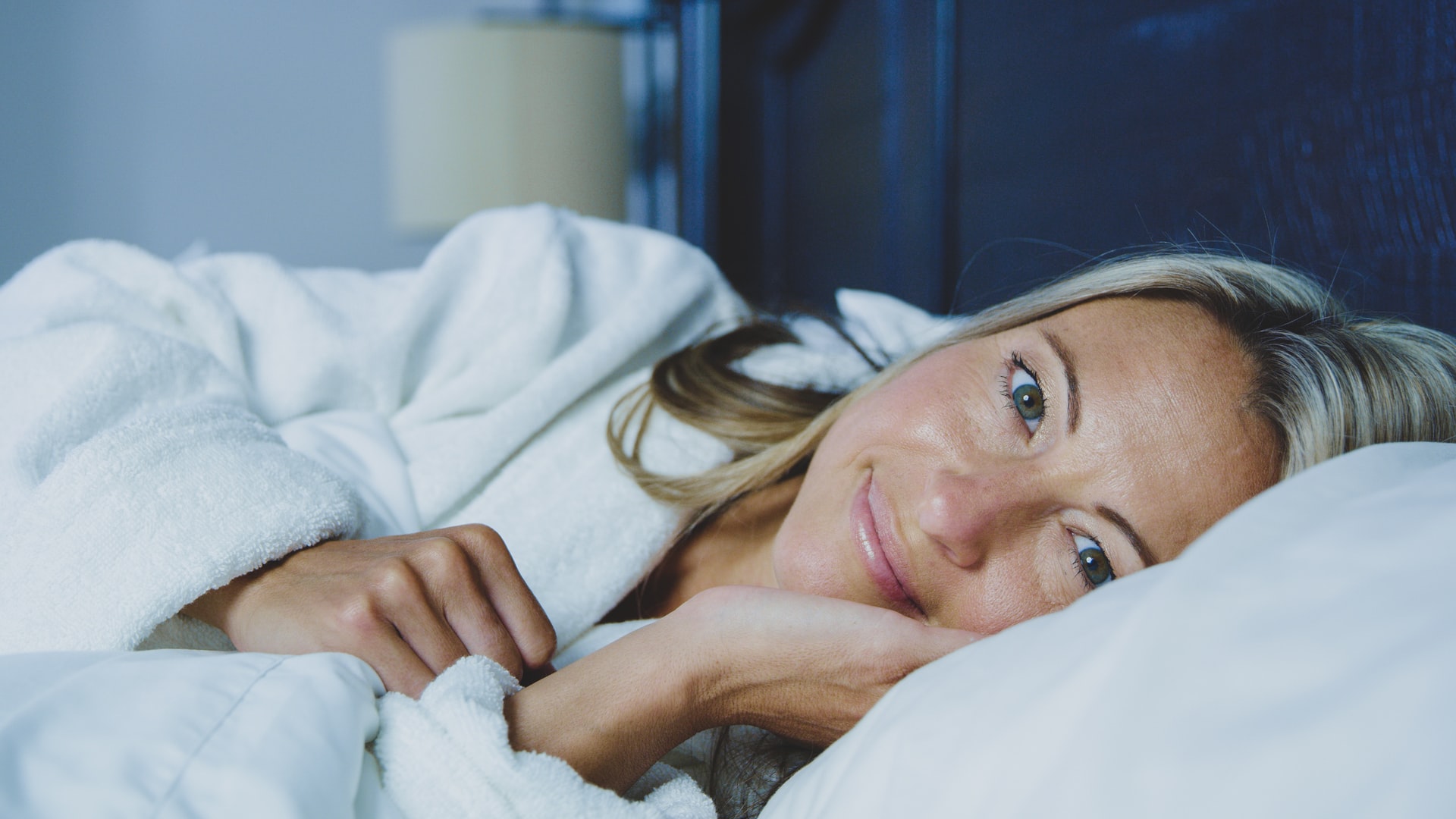Your body knows the answer. Even if your mind would like to avoid the question, the quality of sleep you get each night registers immediately with how your body functions. One night without enough sleep and you may feel like you are coming down with something the next day.
A good night’s sleep makes you feel like a million bucks!

Deep restorative sleep is linked to your vitality. As a matter of fact, the most important determinant of long life is not based on diet, exercise, or genetics, but rather how you sleep.
Every organ and cell in the body, inside and out, is designed to replenish at night while we sleep. There is a reason for the phrase “beauty sleep”.
Do you find yourself in a culture that still minimizes the significance of sleep?
Napolean thought only a fool would sleep for 8 hours. Thomas Edison also believed sleep was a waste of time. Up until a few decades ago, scientists weren’t focused much on sleep. Very little research was being conducted on the topic of the impact of poor sleep on our health.
Today, the reasons why we sleep are only theories. However, the number of sleep labs and sleep studies has skyrocketed. And yet, many companies fail to understand that there is a proven correlation between the quality of sleep and productivity.
Knowledge makes you powerful.
Here are some statistics to raise awareness of the importance of sleep. 2011 Sleep in America Poll reported that 43% of people between the ages of 13-64 rarely sleep enough during the week and 60% have sleep problems almost every night.
Workers with poor sleep die sooner, are less productive, and miss 1.2 million working days each year. The cost to the economy due to sleep problems is estimated at over 40 billion per year.
What’s your solution to better sleep?
If you have been telling yourself there’s nothing you can do about being a poor sleeper, that is simply not true. Improving your Sleep Hygiene (habits) starts with assessing the factors that are affecting how you sleep.
These can range from aspects of your bedroom environment, lifestyle choices, and stress minimizing behaviors. It may be time to establish a new bedtime routine,
Create Your Best Environment
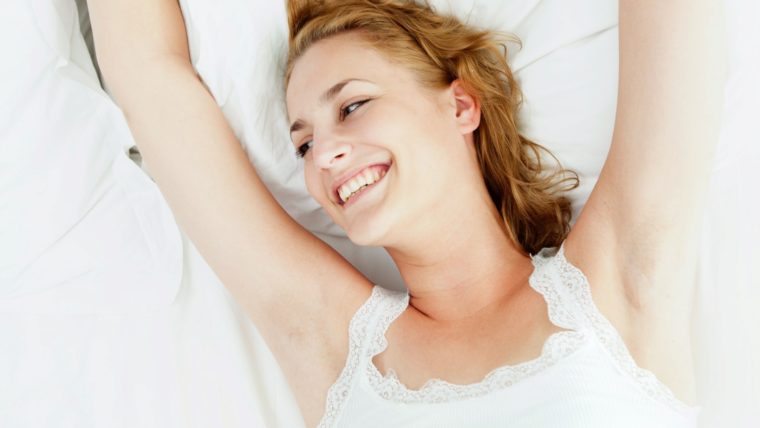
Many of the keys to optimal sleep lie (pun intended) in creating an optimal sleep environment. Your bedroom may need a new make-over but not the kind you need to consult with a decorator. Your bedroom will serve you best, to create optimal sleep, by turning it into a sanctuary, a place only for peaceful thoughts, a place to feel calm, centered, and relaxed.
Do you use your bedroom as an office, media room, storage room, or dining room? When was the last time you ate in bed while watching TV and paying bills?
Close your eyes and imagine your ideal of a sanctuary. What colors are prominent? What sounds can you hear? Is there a particular scent you smell? What is present to create an environment of total relaxation?
5 simple Sleep Tips that can radically change your life!
Tip # 1 How quiet is your bedroom? Your brain processes sound constantly, including while you sleep.
Do you need to wear earplugs to block out disruptive sounds? Are there outside noises from the street or inside noises from a partner? Does your pet sleep pet in your room and make noises that disturb you?
I coached a client recently, who was regularly awakened by her cat. Her cat would frequently scratch at her bedroom door to be let out. To solve her problem, I recommended installing a cat door to provide access to the litter box. She followed my advice and now she sleeps soundly for 8 hours.
Are you worried about sleeping through your alarm?
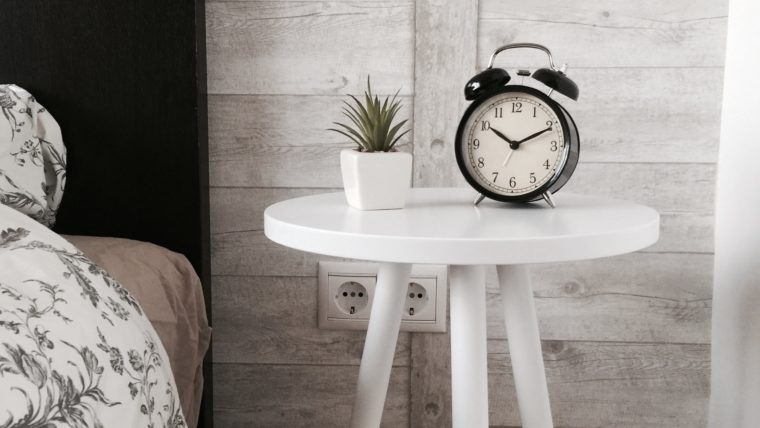
Choose your alarm thoughtfully. Are you using a sound that could “wake the dead”? I recommend using more pleasant sounds.
When you are sleeping better try to awaken without the use of an alarm at an intentional time. If you are skeptical or too nervous, set a backup alarm at the latest possible time you need to be up. This probably will not work if you are suffering from extreme sleep debt.
Tip # 2 How much light is in your bedroom? A dark bedroom is necessary.
Darkness triggers the brain to produce a natural “sleep hormone” called Melatonin.
What if you do wake in the middle of the night?
Use natural low lighting LED bulbs for a bedside lamp and a night light in the bathroom. Limiting your exposure to light will help you go back to sleep more easily.
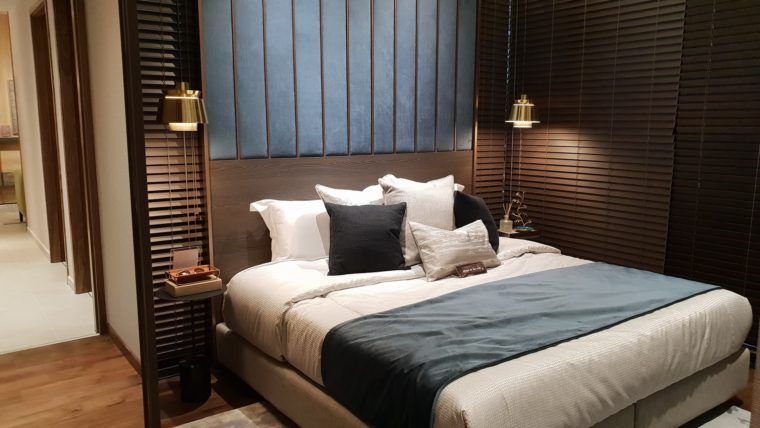
How do I block outside light from disturbing me?
Use a sleep mask as another great solution to block out all lights while you rest. This is good if your partner likes to read later than you.
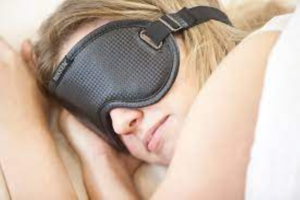
All sleep masks are not the same. I love using a magnetic sleep mask that relaxes my eyes and calms my mind, along with blocking out all light.
If you have difficulty staying asleep, try removing all the electronics from the bedroom. Be honest — does a TV, cell phone, or computer fit into your picture of a sanctuary?
The blue light that comes from electronics is particularly harmful to blocking Melatonin, the body’s sleep-inducing hormone. If you must relax by watching TV before you go to bed, watch it in a different room. Charge your devices in a different room. Ideally, read something calming with natural dim light before bedtime.
Tip #3 Your sense of smell plays a huge part in relaxing you to sleep well.

Clean air is very important for a good night’s sleep. An air filter machine can remove odors and irritants from your bedroom. An air purifier can also generate negative ions which are vitamins in the air. Indoor air quality needs to be filtered because it is more polluted than outside air. You can also improve your sleep environment by adding lavender and chamomile essential oils. Clean air to breathe creates a more restful sleep.
Tip #4 The bedding you choose is critical to “your great sleep makeover”.
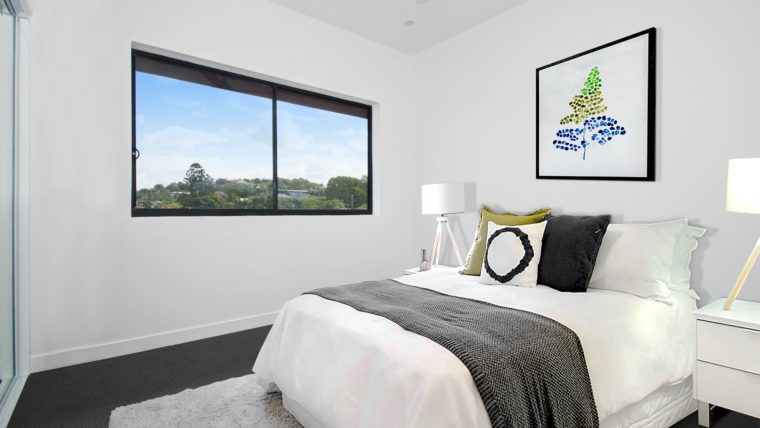
This covers everything from the sheets, the comforter, the mattress, pillows, and the mattress topper. You can learn about the Nikken Sleep Technology I use. (ADD link). Nikken’s approach is all-natural, based on the science of optimal sleep.
Tip #5 Start treating your bedroom as a sanctuary.
When you walk into your bedroom, you want to feel a sense of ahhhh! As a starting point, don’t use your bed as a place to complete projects. And keep all “heated discussions” out of your bedroom. Make your bedroom a sanctuary for rest and rejuvenation. Allow yourself to feel peace and love so you can experience the most optimal sleep environment.
Recognition of sleep disruptions is the first step to better sleep. Now you can develop a plan and consult your accountability partner. Old sleep habits can be difficult to change by yourself for optimal results consult a coach.
To schedule a complimentary sleep evaluation, click here.
And what about water? Check this blog here.

